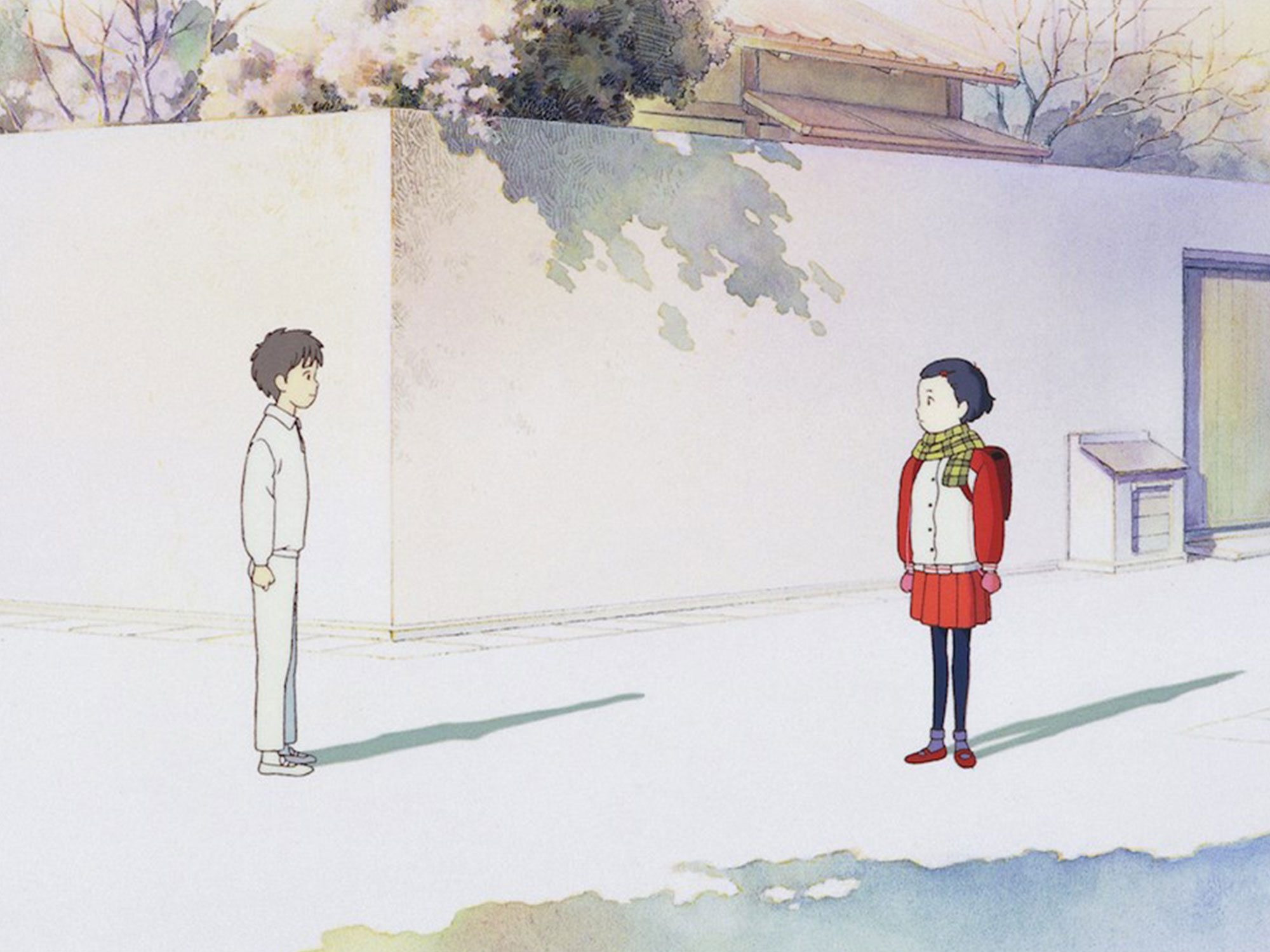
The cherished oeuvre of Japanese animation house Studio Ghibli is making its way to streaming services for the first time ever this weekend. With all of Hayao Miyazaki’s work available, it’s a chance to introduce others to childhood staples like Spirited Away or Kiki’s Delivery Service. But it’s also a great opportunity to dig deeper into the Ghibli canon.
Among the studio’s earliest releases is co-founder Isao Takahata’s humanist masterpiece, Only Yesterday. Takahata always operated as the left brain to Miyazaki’s right, having brought the studio down to earth in 1988 with the devastating anti-war film Grave of the Fireflies, which first screened in a double bill with My Neighbour Totoro. Similarly, Only Yesterday deals with the real world through simple observations, favouring small moment of human drama over fantasy elements.
Following 27-year-old Taeko Okajima as she takes a holiday to the rural part of Yamagata Prefecture, away from her office job in Tokyo, the film is essentially a story of memory. Taeko recalls her time in fifth grade, attempting to solve a crisis of identity experienced during a formative period of her life. The divide between the idealism of her childhood and her more anxious adulthood bleeds into the very texture of the film, as Takahata paints the past with a faded backgrounds and washed out pastel tones – an ‘incomplete’ look compared to the vivid colour and detail of the present.
In this sense, Only Yesterday is a trip into another world, but it’s the inner world of the main character that Takahata is interested in, rather than realms of spirits or folklore. With music by Katz Hoshi and a deliberate contrast between cartoonishness and meticulous realism, the film looks and sounds remarkably different to the work of Miyazaki.
As a 10-year-old, Taeko’s expressions are broader, more traditionally anime, like how her eyes can sparkle and widen to impossible size. Her memories of fifth grade are filled with literal flights of fancy, abstract backdrops and expressionistic storyboarding. By contrast, the reality of the present is a rich canvas; faces are drawn with more lines than usual for Ghibli and, in another rare touch, the voice performances were recorded first so that the animation could be done around them.
As an adult, we observe the dimples that form on Taeko’s face when she smiles, the way her brow creases and her eyes wrinkle up when she laughs; Takahata and his team of animators emphasise the way the muscles in the human face contort to create expression.
An extended portion of the flashback to Taeko’s childhood is dedicated to her learning about periods and the stigma that comes with it (Taeko is devastated when an idiot boy yells during class, “the girls are buying underpants in the infirmary!â€), while learning to adjust thanks to a calmer, more mature friend. Takahata clearly has great affection for his characters and there’s a sense of wonder about the way even the most mundane aspects of life are rendered, such as when Taeko’s family buys and eats a pineapple for the first time, or when Taeko struggles with maths, or how to articulate herself to her crush.
As Taeko reflects on her life, the faded background slowly fills out, the colours becoming brighter and more vivid; the change her moment of self-reflection brings about bleeds into the film’s aesthetic. As Taeko becomes more resolute in deciding what she wants to do with the rest of her life, and realises what she has learned from her childhood, the past literally becomes more clear.
Only Yesterday does not hit the dramatic highs of Miyazaki’s work, but that’s partly the point. It’s less concerned with presenting a grand thesis about the nature of being human than it is navigating the heartbreaks, triumphs and regrets that make us. But it’s still comforting for a film about the relentless march of time, the title even invoking both the speed with which childhood can pass us by and how close those memories stay with us.
It’s immensely relatable in how it evokes these little tragedies: the feeling of being a fraud; of missing out’ of wondering if you’ve left your childhood self behind; idealism; dreams and all. It asks us not to mourn what might or might not have happened, but to keep those memories close, and use them to move forward. That Only Yesterday makes this feel as wondrous as a castle in the sky or a land of spirits is nothing short of miraculous, and why it ranks among Ghibli’s best.
The post Only Yesterday is a masterful reflection on youth’s impermanence appeared first on Little White Lies.
